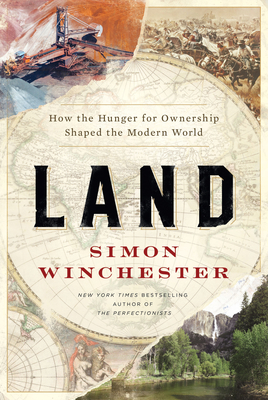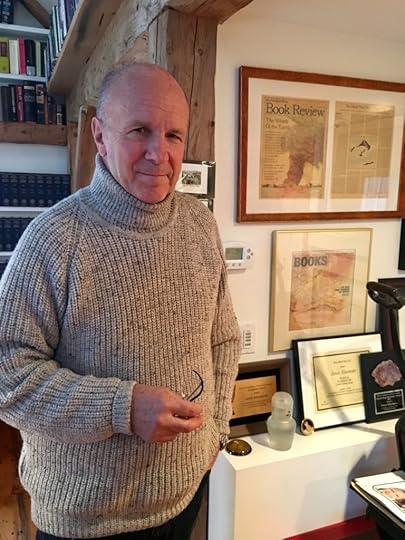What do you think?
Rate this book


464 pages, ebook
First published January 19, 2021
This we know: the earth does not belong to man, man belongs to the earth. All things are connected like the blood that unites us all. Man did not weave the web of life, he is merely a strand in it. Whatever he does to the web, he does to himself. - from Chief Sealth’s letter to President Pierce on a treaty giving much of what is now Washington state over for white settlementWhat are the three most important things in real estate? All together now, “Location, location, location.” Simon Winchester, in his usual way, has offered us a grand tour of land, and thus real estate on our planet. Note the subtitle, How the Hunger for Ownership Shaped the Modern World). This is not the broker’s walk-through in which the good elements are highlighted while the less appealing aspects are minimized or ignored. It may be that location is the most important property of land, but there are other features that are worth knowing too. Things like How much land is there? How do we know? How was it measured, by whom, and why? Is the amount of land fixed? Can it increase or decrease? Can land be made unusable? Where is everything? Who can make use of it? Is land inherently public, for (reasonable) use by all? Was it ever? How did it come to be private? How do different cultures think about land? Why is land divided up the way it is, into public and private, into parcels of particular size? Who gets to own land, and who is relegated to merely renting it? Winchester has answers.

I think what I’ve done is to get obscure figures from history and tell the stories like I’ve told you about Mister Penck and his maps, Mister Struve and his survey, Mister Radcliffe and his line, and turn them into what they truly are, which is heroic, forgotten figures from history….I just become fascinated by these characters. - from the Kinukinaya interviewThere are plenty of interesting sorts in Land. Maybe none of the folks noted here are quite so interesting as the institutionalized murderer in The Professor and the Madman, but they are still a colorful crew, and it is clear Winchester had fun writing about them. They include Cornelius Lely, who built the 20-mile-long Barrier Dam in The Netherlands, which turned the Zuider Zee into vast tracts of arable land, Gina Rinehart, the world’s largest private landholder, not someone who has contributed nearly so much to the store of human knowledge as she has to conservative politicians, and Friedrich Wilhelm Georg von Struve, who spent forty years measuring a meridian for the tsar of Russia. There are many more, of both the benign and dark variety.
When the missionaries came to Africa they had the Bible and we had the land. They said 'Let us pray.' We closed our eyes. When we opened them we had the Bible and they had the land. -- Desmond TutuThere are surprising connections made, such as the relationship between the invention of barbed wire and America’s appetite for beef. Or the link between the growth of commercial aviation and the development of World Aeronautical Charts, well maybe not so surprising, that. But that such things did not exist prior to people flying the friendly skies reminds us just how recent so much of the foundation of today’s world truly is. I suppose it also might not count as surprising, but John Maynard Keynes had an interesting solution to the problem of landed gentry, euthanasia.
We abuse land because we see it as a commodity belonging to us. When we see land as a community to which we belong, we may begin to use it with love and respect. - Aldo Leopold, A Sand County Almanac (1948)